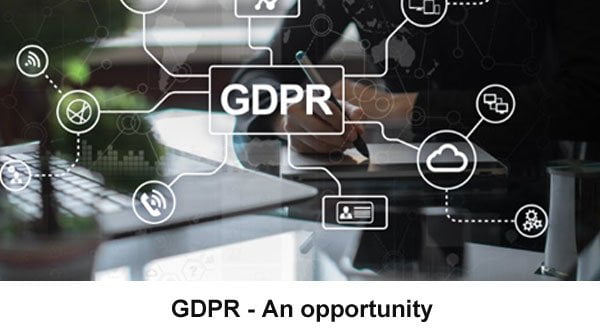GDPR: An Opportunity or Burden ?
Businesses these days are speedily accumulating information that identifies people. How that information is used and managed, and therefore the degree to that it protects individual privacy, varies greatly. With the GDPR, this may change.
New GDPR rules can protect the privacy of European residents and any businesses that deal with them. The hype that enclosed the introduction of the General Data Protection Regulation (GDPR) earlier this year directed a spotlight on the thorny issue of information privacy.
This is vital as loss of personal or work-related data may be a huge problem for businesses of any size or sector almost half of UK businesses have fallen victim to cyber attacks or security breaches within the last year, costing them every thousand of pounds, according to a UK government report. In essence, the GDPR is regarding protective and enabling the information privacy rights of people, handing power back to the data’s owner, whether it consists of location data, online identifiers like usernames, IP addresses or cookies, or different records.
The arrival of GDPR suggests that greater penalties for information loss are imposed, thus it’s essential that companies are compliant. However, recent information suggests that a lot of firms are still struggling with their compliance efforts. A poll by The Governance Institute (ICSA) shows that over three-quarters (78 percent) of organizations surveyed have found becoming compliant with GDPR to be “a heavy burden” on their resources. However, GDPR affects each organization, and little and mid-sized firms will fall victim to information breaches as much as the enterprise.
Having a business continuity and disaster recovery (BCDR) policy in place ought to be essential for any organization to protect client information from accidental loss or criminal information breach. However, within the case of GDPR, it ensures the integrity of the information and may facilitate firms get over a ransomware infection.
Being GDPR compliant needs understanding the information you hold, your policies and processes for managing that information and training employees to make sure they perceive and may adjust to these rules. Mapping out however information moves through the corporate and where it’s stored whether it’s in emails, CRM systems, cloud applications or on a backup appliance may be a good starting point. Once it involves defending against cyber-attacks and information breaches, human error is commonly an issue, thus educating your employees is crucial. Technology may be used to enforce consistent security policies across the organization.
Businesses should additionally make sure the ongoing confidentiality, integrity, and availability of process systems and services, likewise as having the vital ability to access personal information in a timely manner within the event of a physical or technical incident. With additional information being processed and keep, cyber threats continued to grow and with laws like GDPR being implemented, managing information is becoming increasingly complex for small businesses.
Non-compliance with the new regulation cannot solely cause reputational harm to an organization however additionally result in substantial fines. Within the coming months, case law and experience can shine a stronger light on exactly what the regulation means in reality.
